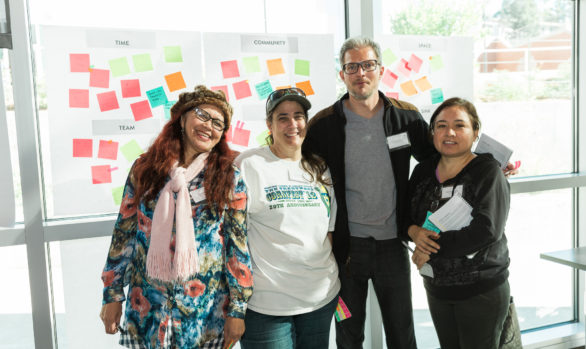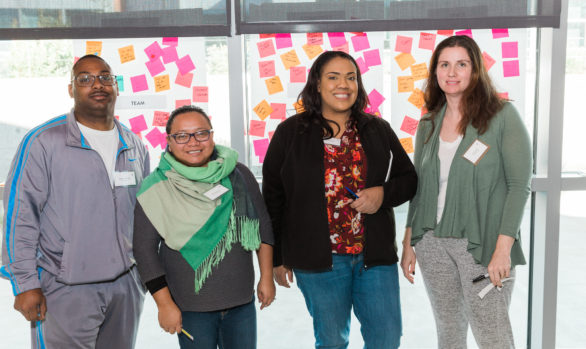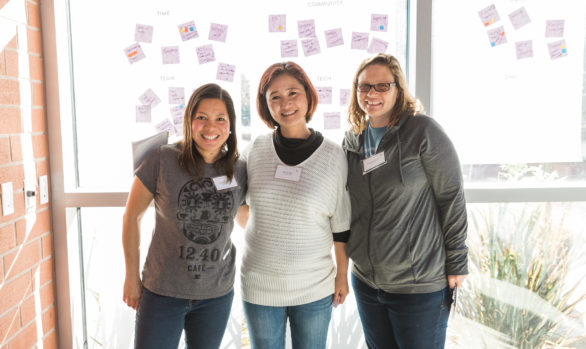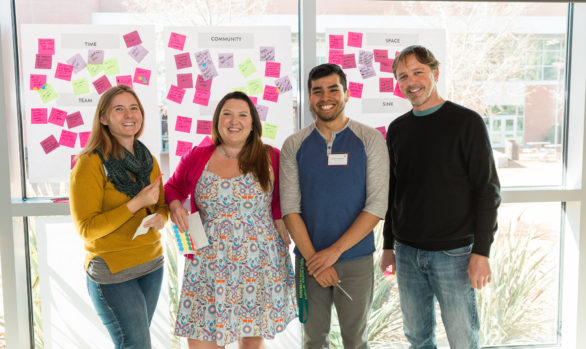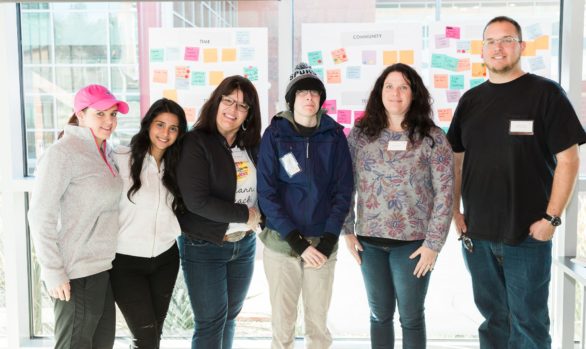Montalvin Manor Elementary School
CALIFORNIATEAM
Katherine Acosta
Jessie Welcomer
Maria Brown
PROBLEM
A lack of student voice is a problem for students and Montalvin culture because students don’t feel heard and don’t have an avenue to get help. Complacency is a problem for Montalvin teachers because it stifles innovation for teachers and kids.
HOW MIGHT WE
How might we empower students to advocate for themselves in order to: solve complex problems, communicate
effectively, and build community by rethinking school systems that create opportunities for student voice, choice, and leadership?
SOLUTION
• Piloted student-led conferences in the spring (three-day Portfolio Nights)
• Piloted flexible seating arrangements in one fifth-grade classroom
• Revamped next year’s August professional development plan to incorporate more training around workshop model (will be implementing Reading Workshop across grades 3-7) and increased amount of training
Portfolio Nights:
• All teachers committed to three days of student-led portfolio
nights in place of the traditional Open House
• Students led families around the classroom through stations
and presentations to share their work and data
• Teachers collaborated at two different Wednesday collaboration
sessions to plan for this night
• Teachers also received additional funding to implement art
projects prior to Portfolio Nights
• We collected data through interviews with students and
families to understand community perspective and determine
impact
Flexible Seating:
• Implemented a pre-survey to determine what type of seating
fifth graders desired and how they thought they learned best.
• Added a carpet, milk crates with cushions, and standing
desks to the fifth-grade classroom
• Students have flexibility and options throughout the day to
work in different spaces and reflect on how they are most
successful
• Post-survey implemented to measure the success of new
seating options
Professional Development Plan
• Ordered new curriculum for Reading Workshop to incorporate
workshop model into reading in grades 3-7 alongside
Writing Workshop (already implemented across all grade
levels)
• Applied for two different grants to fund an extra two days of
full-staff professional development in August
• Developed professional development plan to maximize learning
and teacher collaboration during the August training days
• Expanded on the professional development plan to focus
next year’s collaboration on the workshop model and increasing
student-led conferences to three times a year
OUTCOMES
1.) Every teacher is personalizing learning for their students. Students show motivation through work ethic (homework completion, reading logs, attending events like tutoring and reading club).
2.) Students set their own goals and create action plans to present to teachers and parents.
Teachers provide a platform for student choice through instructional practices. Students are
making more decisions in how they are learning.
3.) Students have the opportunity to engage in real world/community problems. Teachers revise
and add to the curriculum to be more culturally responsive. Improved attendance at “parents
as partners” events. Parents are empowered to change community and are supported by community partners.
IMPACT
1.) Students solving complex problems, increased percentage of students at grade level (SBAC
scores), academic outcomes are higher with more students meeting their growth goals.
2.) Students are brought into learning and are advocating for their learning needs; families are empowered to advocate for students; teachers and staff value and promote student voice/opinion;
students can communicate, solve complex problems and collaborate effectively.
3.) Students can communicate who they are and can display and practice emotional intelligence
and cultural sensitivity. Students explore where they come from and the values of their community.
Parents understand the pedagogical approach and underscore it in their interactions with the school
and child.

